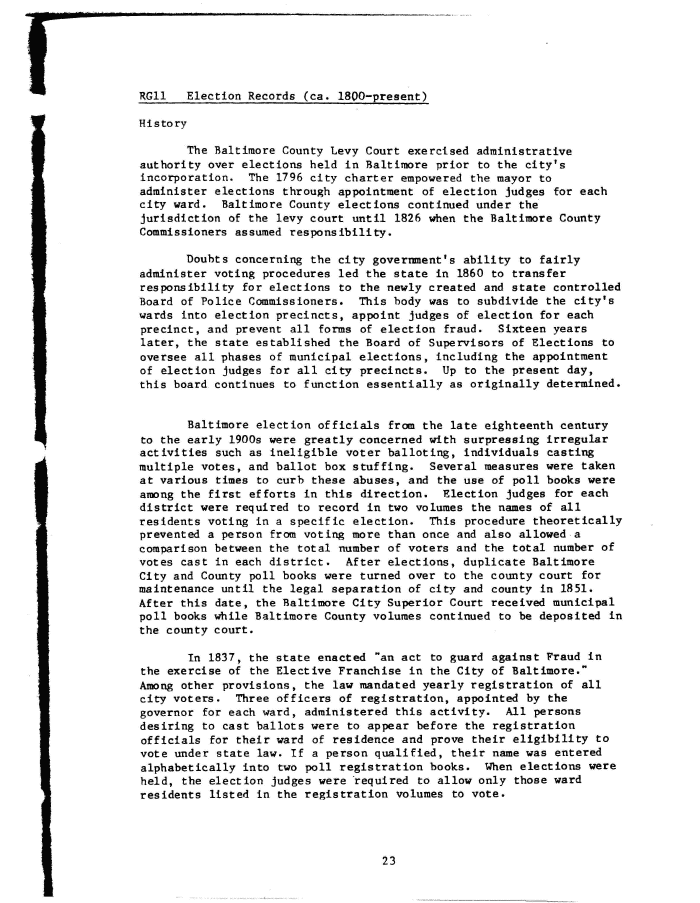|
RG11 Election Records (ca. 1800-present)
History
The Baltimore County Levy Court exercised administrative
authority over elections held in Baltimore prior to the city's
incorporation. The 1796 city charter empowered the mayor to
administer elections through appointment of election judges for each
city ward. Baltimore County elections continued under the
jurisdiction of the levy court until 1826 when the Baltimore County
Commissioners assumed responsibility.
Doubts concerning the city government's ability to fairly
administer voting procedures led the state in 1860 to transfer
responsibility for elections to the newly created and state controlled
Board of Police Commissioners. This body was to subdivide the city's
wards into election precincts, appoint judges of election for each
precinct, and prevent all forms of election fraud. Sixteen years
later, the state established the Board of Supervisors of Elections to
oversee all phases of municipal elections, including the appointment
of election judges for all city precincts. Up to the present day,
this board continues to function essentially as originally determined.
Baltimore election officials from the late eighteenth century
to the early 1900s were greatly concerned with surpressing irregular
activities such as ineligible voter balloting, individuals casting
multiple votes, and ballot box stuffing. Several measures were taken
at various times to curb these abuses, and the use of poll books were
among the first efforts in this direction. Election judges for each
district were required to record in two volumes the names of all
residents voting in a specific election. This procedure theoretically
prevented a person from voting more than once and also allowed a
comparison between the total number of voters and the total number of
votes cast in each district. After elections, duplicate Baltimore
City and County poll books were turned over to the county court for
maintenance until the legal separation of city and county in 1851.
After this date, the Baltimore City Superior Court received municipal
poll books while Baltimore County volumes continued to be deposited in
the county court.
In 1837, the state enacted "an act to guard against Fraud in
the exercise of the Elective Franchise in the City of Baltimore."
Among other provisions, the law mandated yearly registration of all
city voters. Three officers of registration, appointed by the
governor for each ward, administered this activity. All persons
desiring to cast ballots were to appear before the registration
officials for their ward of residence and prove their eligibility to
vote under state law. If a person qualified, their name was entered
alphabetically into two poll registration books. When elections were
held, the election judges were required to allow only those ward
residents listed in the registration volumes to vote.
23
|

